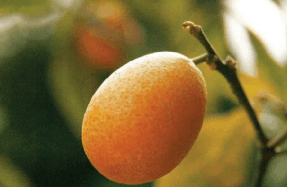Palm oil and the environment


Palm oil is grown in the tropics, and is extracted from the fruit of the oil palm tree, Elaeis guineensis, that is native to west and central Africa. Red in colour, the palm fruit is high in carotenoid antioxidants, and also saturated fat. The finished product coming from refineries is denatured through being processed and refined.
Deforestation
Starting in the 1970s, the palm oil sector underwent exponential growth. Oil palms provide a high yield, and the oil became the cheapest on the world market. Palm oil also appealed to the food industry because it is odourless and colourless, remains semisolid at room temperature, has a creamy texture and extends product shelf life.
Most of this expansion was centred on Indonesia and Malaysia, which today collectively represent about 85 per cent of world production. The only way this growth could occur was by encroaching on swathes of biodiverse rainforest, with the large equatorial island of Borneo most heavily affected. Deforestation, especially on peatland, which is widespread in that part of the world, is a major source of carbon emissions and contributes to climate change. In 2018, Indonesia introduced a moratorium on new
You’re reading a preview, subscribe to read more.
Start your free 30 days





